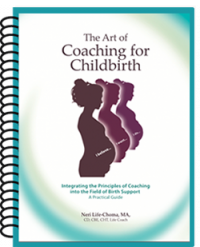
Supporting Millennials throughout Pregnancy and Childbirth
Do you know your birth clients? Does your philosophy of care resonate with them? Do you employ the best strategies to support them? Rather than the optimal pathway to maternal care, Transformational Birth Coaching puts the birth client at the center of the support process. In doing so, we find that there is a generational gap that might be interrupting us in supporting millennials throughout pregnancy and birth. Halt! Take a deep breath…I’m not calling out on millennials. I raised two millennials myself and I love and admire them. I’m simply drawing attention to the generational gap between those who established the field of birth support – their attitudes, philosophy, lifestyle, and collective concepts of pregnancy and birth, and current birth givers. Can this generational gap mean that the philosophy, desired outcomes, and birth support strategies we practice do not resonate with current birth givers, or might not be a good fit? It might be the time to pivot.
Birth support professionals, which I’m a part of, emerged in the 50s as a response to the changing social and medical circumstances surrounding pregnancy and birth. Since then, our professional community has focused on the changing practices relating to maternal care. There have been no major changes related to the physiology or anatomy of pregnancy or birth since Eve. Pregnancy and childbirth are normal processes. Therefore, birth professionals believe that maternal care practices should remain the same practices that served our ancestors. The term Birth Keeper has been adopted by members of the professional community to represent the need to preserve the old-time and traditional practices.
Rather than the optimal pathway to maternal care, Transformational Birth Coaching puts birth clients at the center of the support process
Many birth professionals today are millennials themselves, so you may wonder where is the gap? It can be found in the philosophy and attitudes of the trainers who inspired them. It can be found in their training philosophy and the strategies that they are handed. From inspirational movies that idealize natural birth to literature that blames medical caregivers for being trained to see pregnant and laboring patients as a series of potential pathological problems. It’s in the common practice of informing our clients of the evidence that supports the superiority of natural birth. We inform them that the hospitals’ setup, atmosphere, changing shifts, and routine obstetric procedures are not supportive of normal childbirth. We share risk statistics of getting an epidural. Additionally, in recent years, it has become a common practice for many doulas to whisper into their clients’ ears that the maternal care they are receiving is not evidence-based or in their best interest.
Does it resonate with birth givers?
Birth support trainees might be inspired when they learn about the doula benefits statistics. They can be spiritually inspired by homebirth midwives’ stories. Learning about the biases and flaws of obstetric gynecology studies and practices can be highly motivating for trainees. Except that in reality, we can’t avoid but notice that the majority of birth givers do not follow our lead. If we were as impactful as we were hoping to be, the numbers would be different. In reality, since the establishment of the natural birth movement and birth support practices- such as childbirth education, doula support, or prenatal yoga, the rates of cesareans, epidurals, inductions, and other medical interventions have increased continuously and consistently. These circumstances stimulate negative emotions in the field. Birth professionals experience anger, grief, frustration, resentment, and professional fatigue as a result of not achieving the change that is desired
The natural birth philosophy has inspired us all, but the practices and strategies we were taught are missing an important link.
Millennials have Doctor Google, Dr. Facebook, and Dr. YouTube at their fingertips. They don’t lack information. We need to lead them to find their internal compass and navigate
What is the missing link?
While continuing to focus on the changing social and medical circumstances surrounding pregnancy and birth, we neglected to focus on the changes in our clients! Even though there have not been any dramatic changes in pregnancy and birth physiology or anatomy, the prototype of birth givers has gone through dramatic changes. In addition to the collective generational changes, each expectant individual has their particular circumstances, beliefs, traditions, values, strengths and challenges, motivations, and aspirations which we didn’t spend time learning. Those personal traits were neglected in the 50s as well, but guess what – birth givers were not millennials. One simply can not support millennials without acknowledging that each individual is special!
What’s culturally true about pregnant and laboring people at this time?
- They are overloaded with information. They have Doctor Google, Dr. Facebook, and Dr. YouTube at their fingertips. If anything, they need help finding their compass to navigate their personal experience.
- They rely heavily on technology. They LOVE technology!
- They use contraceptives that eliminate the menstrual cycle and the experiences of tender breasts, menstrual cramping, bleeding, and others. In other words- they do not have the monthly practice for birth as the generations before them.
- They are a fast-track generation. From instant pudding, TV dinners, drive-through eateries to SM’s likes. They get instant gratifications. The concepts of process, natural unfolding, and unpredictability which are the essence of pregnancy and birth, may not be easy for them to embrace.
- They value teamwork and partnership and defy authority.
- They like to think that each of them is special and unique.
How can we best support this generation?
With these and other generational attributes in mind, I developed a new approach to childbirth support – Transformational Birth Coaching.
It puts the individual client, rather than the preferred pathway to maternal care, at the center of the support process. Throughout a series of prenatal coaching sessions, transformational birth coaches focus on the client’s unique mindset, experience, and circumstances. This approach consists of transformative coaching strategies that have been proven to lead individuals to overcome life’s internal resistance and challenges. The goal of this working relationship is to increase their performance levels so that they meet their birthing goals. In light of what we know about current birth givers’ challenges, I created a series of coaching exercises that lead toward a resolution. Overcoming internal resistance has always been important in birth support. The new strategies that I developed help to address the unique experiences and mindset of each birth client. Transformational coaching helps me and my students resolve the set of cultural beliefs and circumstances surrounding pregnant and laboring individuals nowadays. Another added bonus, it can be done virtually.
Are you ready to start coaching?
Are you ready to shift the focus of your practice from promoting the best practice to giving birth? Are you ready to lead birth givers toward their personal and uniquely defined positive birth experience?
- Overshadowing the Transformative Essence of Childbirth with Data - July 10, 2024
- Navigating the Epidural Dilemma - May 28, 2024
- Informed Decision in Birth Support: A Myth of Empowerment? - April 29, 2024


